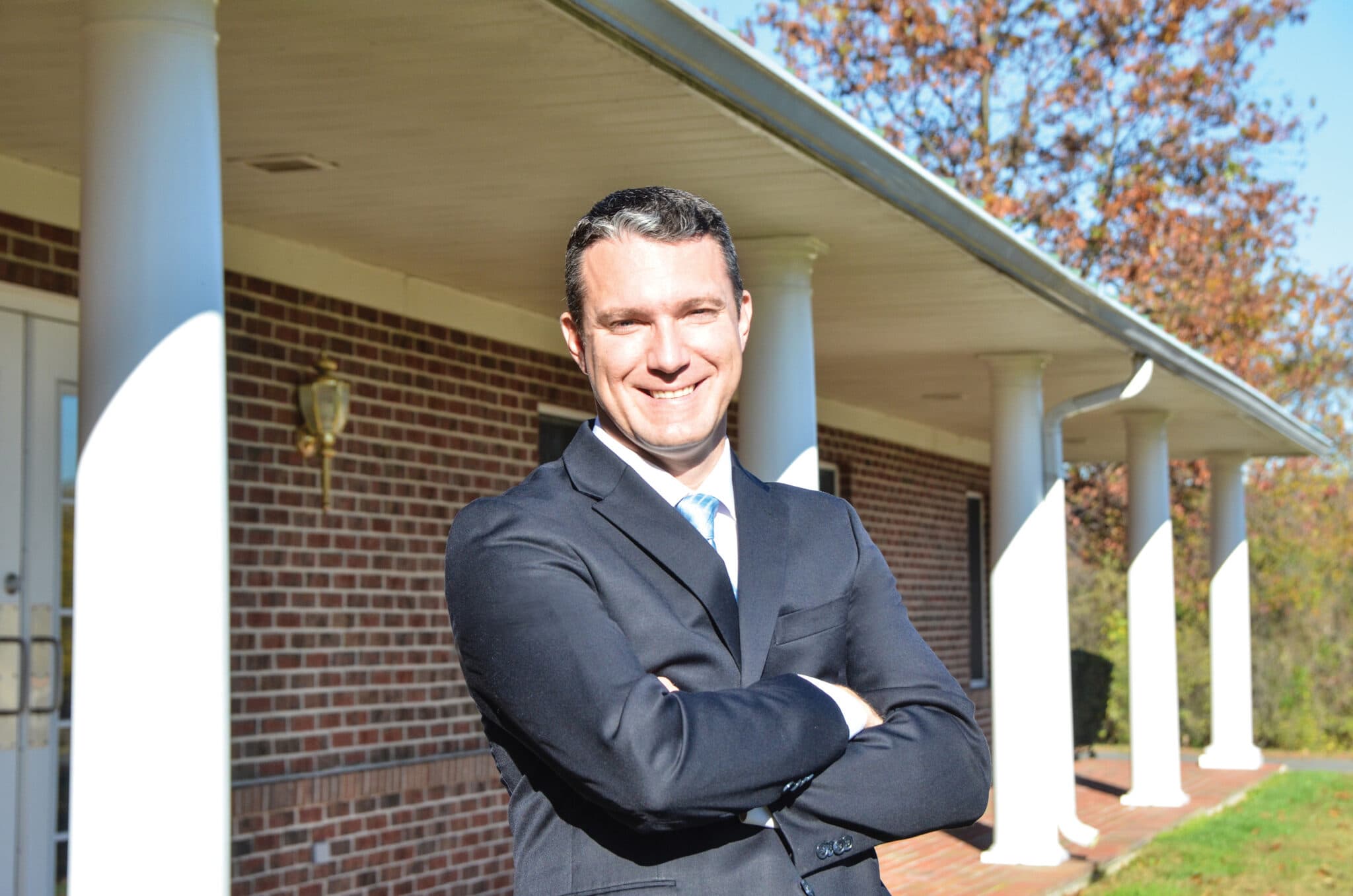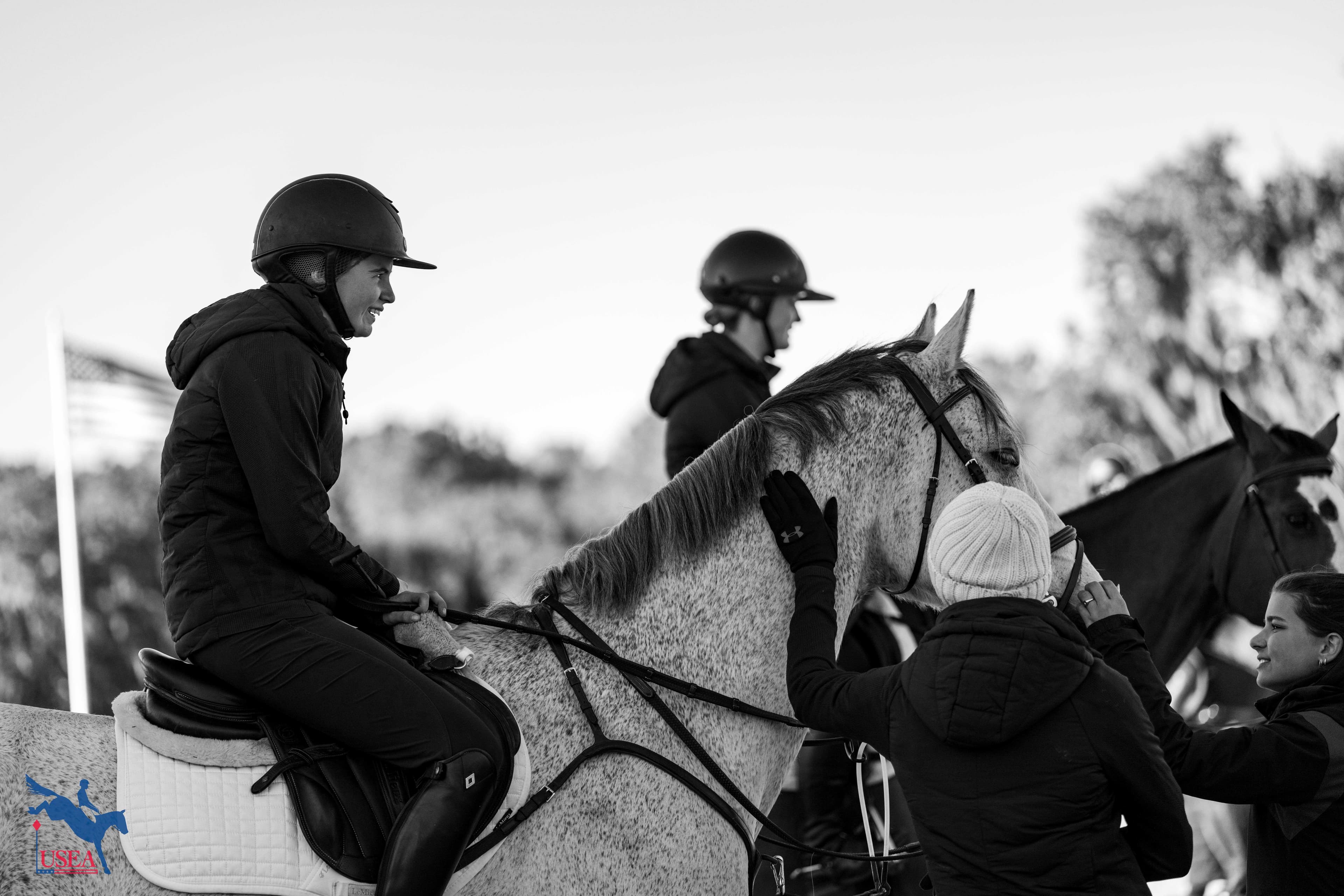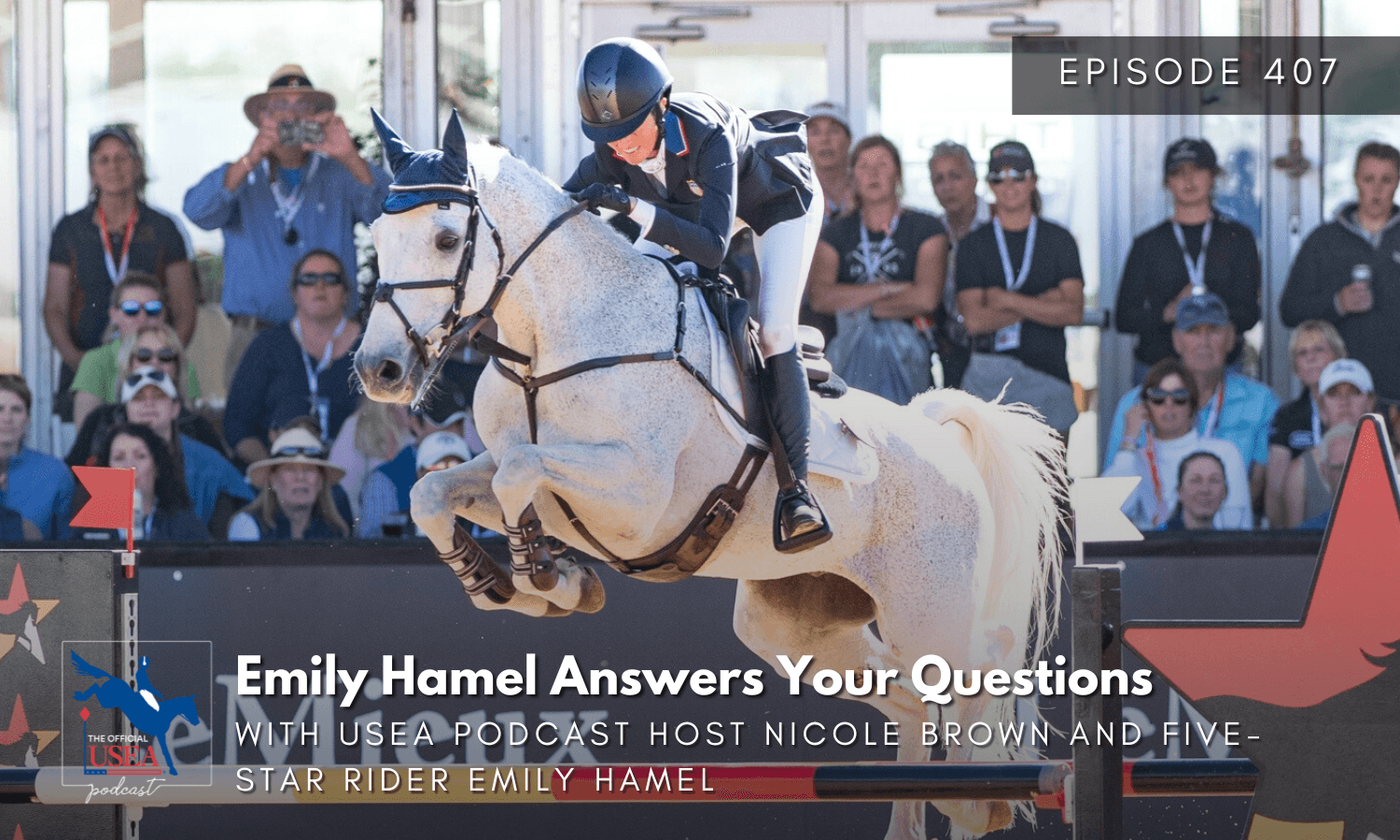Meet the New USEA CEO Rob Burk

As we move into a new Eventing year, we also move into a new era. Jo Whitehouse stepped down as Chief Executive Officer after 17 years at the helm. She leaves an organization with a strong appreciation of its past and the tools to address the challenges of the future. She also leaves us in very good hands.
Two years ago, after an extensive search, we hired Rob Burk as Senior Director of Programs, with a view that he would take over the position of CEO when Jo retired. He became Chief Operating Officer in 2014. Rob has worked closely with the Board of Governors and with Jo and is well prepared to assume the position of CEO of the USEA. The Board has complete faith in his ability to lead the organization and to continue Jo’s legacy of highly capable leadership.
Leslie Mintz, Editor of Eventing USA, recently posed a number of questions to Rob about his background and his vision for the sport. Now it is time for the membership to get to know Rob.
What is your Eventing background?
I’ve been lucky to have my life intersect with a number of the legends of American Eventing over the years, and the sport has always been a part of my life. My sister and I were introduced to Eventing as members of the Fresno Pony Club in California. Loris Henry, a former USCTA/USEA President, was active with the club and began to guide us into the sport. I rode with some great trainers in California, joined the USCTA and began to ride in clinics. In one David O’Connor clinic in California I must have been bragging as if I was a better rider than I actually was. O’Connor essentially told me that “I have never heard of you.” My ego eventually got over that clinic and it only took about 20 years.
As a junior rider I had the opportunity to travel to Ireland as a working student with Captain David Foster, an Irish Olympian. I groomed at competitions in Ireland and on mainland Europe. When I returned to the states my riding had improved, and I saw some success in Area VI earning year-end awards including the Young Rider Preliminary Championship at the age of 15. Although my father was not a “horse person” he organized a few small events in Northern California, and I begrudgingly served as his "assistant." A couple of years ago someone asked Wayne Quarles what he thought of the younger me. Wayne’s response was “he was a good kid because his father kept him in line!”
Like other young riders I dreamed of representing the U.S. at the international levels, but I did not have tremendous means at my disposal. Not seeing a clear pathway to the top I pursued academics over Eventing. I competed and volunteered occasionally at Area VIII events with the Otterbein University Eventing Team. I taught lessons at Otterbein and coached the United States Naval Academy Equestrian Team. It wasn’t until I graduated with a Master’s from Virginia Tech that I actively took the sport back up and became a member of the Area II Adult Riders. I began to train a few horses in Maryland, and I completed a long format CCI at Morven Park just before the FEI switch over to the short format. Soon after, my wife and I had children and I needed to focus on earning money rather than spending it.
Tell us a little about your work and career history.
My first “jobs” were as a working student, and I credit any humility and drive I now exhibit to working in exchange for lessons with a strong group of Eventing professionals. Over time I also worked as a stallion handler, a riding instructor and I had a stint at retraining off the track Thoroughbreds.
After graduating from Virginia Tech, I accepted a position with the Maryland Department of Agriculture. For almost eight years I worked as the Executive Director of the Maryland Horse Industry Board. I was in charge of a statewide equine stable inspection program, oversaw a grant program for non-profit organizations, managed a Governor appointed advisory board, drafted and analyzed laws related to the horse industry, worked to improve the response to equine disease outbreaks, interacted with land preservation programs and advised three different Secretaries of Agriculture and two different Governors.
Next I worked in Washington, D.C. as a non-political employee of the United States Department of Agriculture (USDA), and worked directly with Congress. I was the Executive Director of five different Boards and Committees, and I served as a Senior Advisor to the leaders of the USDA. While those groups tackled important issues such as the security of the world food supply, human health, food and agricultural research, energy, land and water resources I still felt like I was missing something in my career. Then one day my wife came across an advertisement for a position to work with the USEA. My background had positioned me well for what I would soon consider a dream job.
What has been your history of working with the USEA?
When I interviewed for the job of USEA Senior Director of Programs with CEO Jo Whitehouse I quickly felt like we were long-time colleagues and friends. Our interviews spiraled from basic questions to discussions about the direction of the sport and visions for the future. We shared many common career experiences. My executive experience within State and Federal government and Jo with her executive leadership of the Association. It was at this time that Jo made it clear to me that she was contemplating retirement. Jo convinced me to take that risk of leaving my previous job and return to my true passion, Eventing.
Over the past two and a half years I have had responsibility over a number of USEA Programs including the Adult Riders, Young Riders, the American Evening Championships, Young Event Horse, Future Event Horse, Technical Merit, the Gold Cup and the Classic Series. At the end of 2014 I was promoted to the position of Chief Operating Officer of the USEA.
What do you think will be your greatest challenge as USEA CEO?
Following Hall of Fame inductee Jo Whitehouse! I have to admit it feels a little bit like I am the baseball player who took Babe Ruth’s spot when he left the field. Can you name that guy? I know I can’t. Jo’s knowledge of the history, the players, and the direction of Eventing is unsurpassed. My challenge is to maintain, and develop the Association as significantly as it has under Jo’s guidance.
As a sport I believe we have numerous challenges all of which intertwine. At the top of my list are rider and horse safety. My ears, eyes, heart and mind are wide open, and I will continuously search for ways to protect our horses and riders. The riding-related death of one of my mentors, David Foster, imprinted on me the importance of safety to our future.
Additional challenges include but are not limited to making sure the costs to compete and organize Events are reasonable, protecting land, instilling the importance of volunteerism, working to set a fair playing field for sound businesses involved in the sport, increasing investment, growing our ranks, and showing appreciation for those that are involved in our sport at all levels. I believe in forward progress, and I want to methodically improve our sport and the Association whenever necessary. I believe in helping the whole and not dedicating everything to one piece. Amateur or professional, small Event or large, organizers, horse owners, breeders, secretaries, officials, land owners, volunteers, young riders or mature riders, young horses or mature horses all parts are important to this sport. All of these parts are more than ‘the backbone’ of this sport they are the vertebrae that make up that backbone. My challenge is to keep everyone looking forward while learning from our past.
What are you most looking forward to as USEA CEO?
I’d be lying if I didn’t say that representing the USEA at Events around the country is a treat. Meeting new people, renewing old friendships and witnessing the magnificence that all of our Eventing horses and ponies exude is going to keep the fire burning in my soul for this amazing sport for the rest of my life.
Which USEA program are you most passionate about?
Any program that is created to meet a need and is thoughtfully adjusted to continue to meet that need. Our educational, Adult Rider, Young Rider, and Young Horse programs are all good examples of that. These programs will always be improvable but it is the essence of why they exist that I am most passionate about.
When it comes to a program I have had a strong hand in creating, I am the proudest of the newly established Intercollegiate Eventing Program. I experienced how easy it is to be pulled away from the sport, and the USEA has traditionally had a significant drop off of college age members each year. The establishment of the Intercollegiate Eventing Program is an important piece of the puzzle in the retention and growth of our membership. In its first year of existence the Program has registered hundreds of students as USEA Collegiate Members. For the first time in several years the USEA regained ground, and is holding steady with riders between the ages of 18 and 22. We now have over 30 current College/University Affiliates registered with the Association. This program was created to meet a need, and we are beginning to see the benefits of its establishment.
What is your most memorable moment of working for the USEA so far?
Watching riders at the AEC finish their show jumping rounds, hug their horses and being presented with awards by some of our fabulous volunteers. The riders’ faces were beaming with smiles from ear to ear, families and friends were cheering them on whether they were the overall champions or simply managed to get around. The horses were clearly enjoying their jobs and the volunteers were helping to bring that joy directly to those riders. The essence of what makes our sport great was represented by that entire interaction.
If you could give one piece of advice to members to help the USEA what would it be?
Get involved! If you don’t like something you may very well be the only person with the passion to change it in a positive way. I’ve witnessed Board of Governor members who are amateur riders at the lowest levels of the sport have as much of an impact as the most famous professionals. There is no reason why you cannot have that same effect. A good first opportunity to do this would be to participate in the upcoming summit at the USEA Convention. Even if you are unable to attend in person you can send in your issues of concern, and recommendations on how to address them in advance of the summit by email to [email protected].
What are your short and long-term goals for shaping the USEA?
In the short term, I want to operate the Association headquarters in a transparent fashion, and follow logical clear guidelines for every decision and action we make. I will work to sustain and grow the financial security that Jo Whitehouse, the USEA staff and the Board of Governors have established for the USEA. I will focus our efforts on expanding and improving our services to our members. Perhaps most importantly I want to maintain open lines of communication with our membership and the general public. Transparency is the key and we need to utilize as many forms of communication as are available to us whether it be through the magazine, social media or some other modality.
The mission and goals of the USEA since its establishment as the USCTA in 1959 clearly outline my long-term goals. If you aren’t familiar with our mission and goals, look them up online at www.useventing.com/about. Our founders knew what they were doing, and our members have kept us on course ever since.














